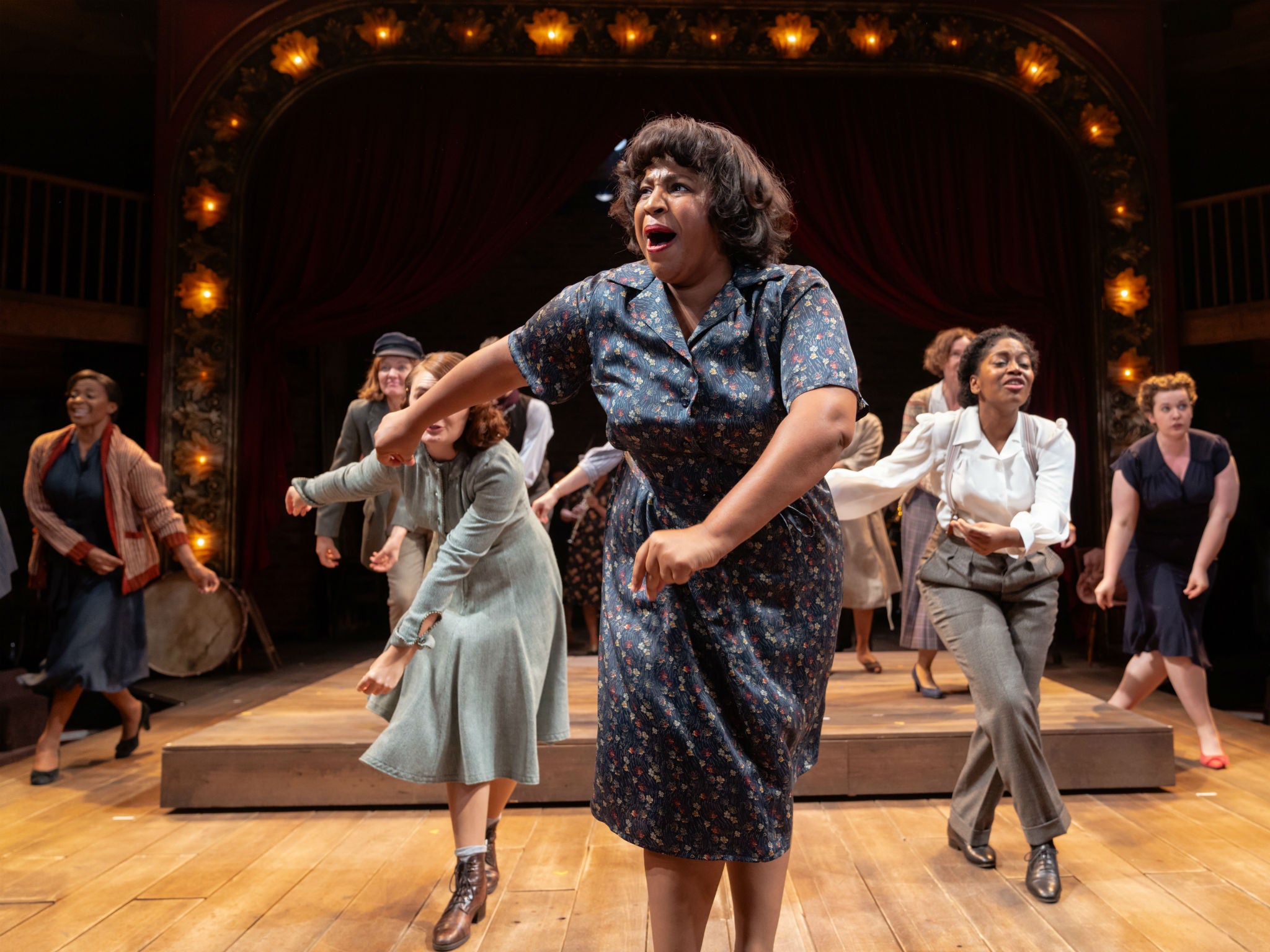Miss Littlewood, Swan Theatre, Stratford-Upon-Avon, review: A new musical reminds us of the pioneering Joan Littlewood – but lacks tunes
Is it ironic that this anti-establishment theatre director should have her work celebrated at the other Stratford by the RSC? A bit – but you're soon swept up

Your support helps us to tell the story
From reproductive rights to climate change to Big Tech, The Independent is on the ground when the story is developing. Whether it's investigating the financials of Elon Musk's pro-Trump PAC or producing our latest documentary, 'The A Word', which shines a light on the American women fighting for reproductive rights, we know how important it is to parse out the facts from the messaging.
At such a critical moment in US history, we need reporters on the ground. Your donation allows us to keep sending journalists to speak to both sides of the story.
The Independent is trusted by Americans across the entire political spectrum. And unlike many other quality news outlets, we choose not to lock Americans out of our reporting and analysis with paywalls. We believe quality journalism should be available to everyone, paid for by those who can afford it.
Your support makes all the difference.It’s the angry young men of the Royal Court who tend to get the credit for the revolution in British theatre in the 1950s. This new musical – with book, score and lyrics by Sam Kenyon – is keen to remind us of the pioneering and perhaps more profound influence of Joan Littlewood and her Theatre Workshop at the Theatre Royal Stratford East.
This radical visionary tore down the barriers between ”popular” and “art” theatre, revolutionising the ways in which plays are developed and presented with her improvisational techniques and emphasis on company solidarity and fun. She was a woman ahead of her time, an auteur best known these days for Oh, What A Lovely War! – the peak of her efforts to sharpen political provocation through the traditions of popular entertainment.
“Who’s she when she’s at home?” Joan suspects we might be wondering at the start of Miss Littlewood. “You might as well ask, ’Why do we know about so many unremarkable men and so few remarkable women?’”
Kenyon’s show exuberantly redresses the balance. Clare Burt plays an uncompromising, outspoken and winning Joan, who is imagined to be overseeing a production that takes us on a whistle-stop tour of her life. The charm is mixed with a certain ruthlessness in that she changes the performer playing her six times (“I could recast you at the drop of a hat”) and has testy disputes with the company.
Erica Whyman’s attractive production is colour-blind so that one joyous aspect of the show – which I think would have appealed to Littlewood – is the diverse range of ethnicities within this zestfully played line-up of Joans.
There are features that are less scintillating. The music is, to my ear, rarely more than functional, efficiently whisking her companies through the various phases of their fight to the find a permanent home and Arts Council recognition. (Burt also wickedly impersonates the obstructive authority figures.)
The only truly knockout number is the satiric one in which the actress Avis Bunnage, played with hilarious attack by Sophia Nomvete, tells us about her “posh-Northern” vowel sounds. Imagine every “u” in the following pronounced as in “cup”: “Now listen carefully, sugar/Don’t shrug at people such as me/Come and take a butcher’s at Stratford”. She’s refined with such relentless, tongue-in-cheek determination that it brings the house down.
We are promised that this new musical would have “a mighty love story” at its heart but there’s no real chemistry between any of the Joans and Solomon Israel as Gerry Raffles, her partner, soul-mate, and theatre manager whose premature death in 1975 resulted in her retirement. Given that Littlewood’s approach to theatre was so publicly-minded – reaching out to those disenfranchised from art – this musical seems to end on too subjective a note with its plaintive lament for the man she has lost, however beautifully sung by Burt.
At the start of act two, which begins in 1953, a band playing the national anthem in the theatre at Stratford East is raucously stopped by Littlewood: “I’m not having that imperialist crap destroying the tone. Something more stylish, if you please, maestro”.
It seems a touch ironic that this anti-establishment maverick should end up have her work celebrated at the other Stratford by the RSC, an organisation that is not exactly out-on-a-limb. Is there a tension between the roughness of her theatre and the smoothness of the production values here? A bit perhaps – but there’s not an atom of hypocrisy. You’re swept up by the force of the shows’s enthusiasm for Littlewood and what she represents.
It may not be perfect, but the RSC is to be applauded for producing it.
Until 4 August (rsc.org-uk)
Join our commenting forum
Join thought-provoking conversations, follow other Independent readers and see their replies
Comments